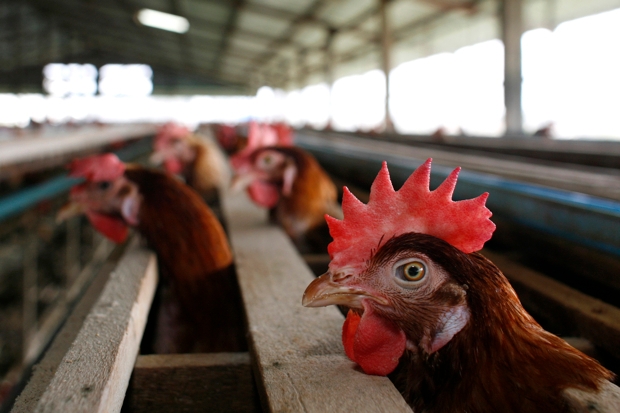Isn’t it weird how Remainers, so keen to present themselves as pro-free trade when discussing the single market, turn into Little Englanders the moment that the subject switches to the prospect of Britain doing free trade deals with countries outside the EU? We are mad to be turning our backs on the world’s biggest market, they will say. But then remind them of the talks towards a bilateral trade deal between Britain and the EU – something which is only possible thanks to Brexit – and they start trying to scare us about the prospect of us being forced to eat chlorinated chicken from the US.
Take this from Nick Clegg – yes, that same Nick Clegg who is forever trying to paint Leave voters as small-minded xenophobes – back in January when the prospect of a UK-US trade deal took a huge step forward with Theresa May’s visit to Washington. Chlorinated chicken, he declared, ‘is bleached – bloody horrible stuff – which is not allowed in the EU, the EU has decided, through various laws…You tell me, but I suspect the good shoppers of Waitrose and Sainsbury’s and others might be a little bit shocked if, suddenly, they are having to eat this slightly white, chlorine-washed American chicken flesh.’
His words are just like those of a pub bore who moans about smelly French cheese taking over from old English cheddar or about French Golden Delicious pushing Cox’s Orange Pippin out of the shops. I dare say that if Cleggers wants to continue eating European chicken he will be able to do so – at a premium. But in trying to put us off US chicken he is wrongly trying to infer that there is a food safety issue involved. In fact, the European Food Safety Agency has passed chlorinated-washed chicken for safe consumption. As well, it might, given that it is quite happy for us to drink water which has been chlorinated in order to kill off microorganisms. At the levels used by US producers, the agency concluded, you would have to eat three whole chickens every day to risk exceeding safe limits. Even among regular consumers of US-produced chicken 99 per cent of the chlorine they ingest comes from drinking water rather than food.
What washing chicken in chlorine does achieve, however, is to kill off salmonella, which is endemic in raw chicken sold in Britain. For the consumer, the choice is pretty simple: would you rather increase your chlorine intake by one per cent – or remain at risk of salmonella poisoning through cross-contamination in the kitchen? Chlorinated chicken is banned in the EU on the pretext that washing in chlorine might be used by producers to hide other hygiene problems. But food premises are supposed to be inspected, chlorination or no chlorination – so if someone is dragging chickens through the dirt before they are sent off to the supermarket it ought to be picked up anyway. The ban is really just one more form of EU protectionism. EU chicken-producers don’t like US chicken because it retails for around 80 per cent the price of European chicken.
That brings me to another of Clegg’s scare stories: that Brexit will push up the price of food for UK consumers. But what if it results in us being allowed to buy food from around the world which is currently kept out of our shops through tariffs and other barriers? There is nothing about Brexit which forces us to lower food safety standards. What it does mean, on the other hand, is that we will be free to determine those rules ourselves, rather than have them dictated by officials acting on behalf of lobbies of European food-producers.







Comments